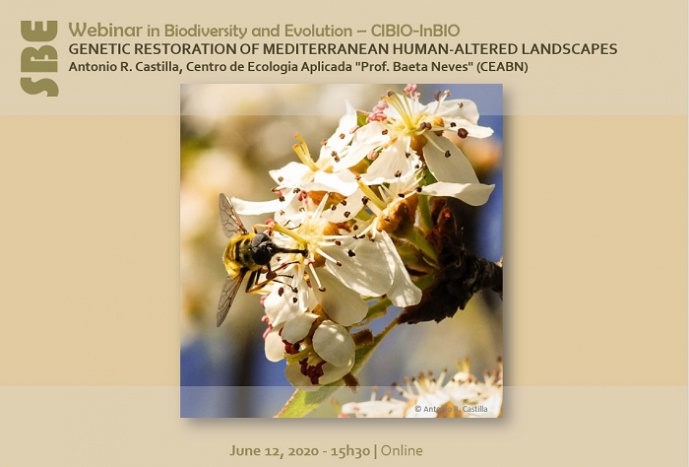Genetic restoration of Mediterranean human-altered landscapes

INVITED TALK - WEBINAR IN BIODIVERSITY AND EVOLUTION
Forest fragmentation represents a major threat to terrestrial biodiversity. Deforestation and resulting declines in tree population density can fundamentally lead to "Allee effects”, potentially compromising survival and reproductive success of tree species. In this line, positive density-dependent reproduction has been reported for a number of tree species with individuals living in dense neighborhoods exhibiting greater fruit and seed production than those more spatially isolated. However, the net effect of positive density-dependence on reproduction is expected to be mediated by the kinship within the conspecific neighborhood. Increased kinship within the immediate neighborhood may lead to intense biparental inbreeding that may result in increased abortion rates. In this study, we tested for positive fine-scale spatial genetic structure (FSGS) in populations of animal-pollinated tree Pyrus bourgeana using microsatellite markers. Also, we conducted hand-pollination experiments using pollen from individuals within and outside of the spatial patches of trees during two consecutive years. Specifically, we investigated the following hypotheses in the Iberian pear: (i) Pyrus bourgeana exhibits significant FSGS with trees within the same patch having increased levels of kinship; and (ii) both fruit and seed production are higher in crosses involving the mating of distant trees. We found positive FSGS in P. bourgaeana populations. Our results also revealed that the mating involving distant parents led to increased fruit production than those involving nearby trees, being the difference greater during the later stages of fruit development. Furthermore, we detected that a substantial portion of saplings in P. bourgaeana populations are clonal shoots instead of recruits from sexual reproduction. Our results support a critical role of pollen quality for the recruitment in tree populations and highlight the relevance of high-mobile pollinators for the preservation of effective pollination services.
The overarching goal of my research is to understand the ecological and genetic mechanisms that enable plant populations to cope with global change. In my research program, I examine the evolutionary forces that shape genetic variation in plants, such as gene flow and local adaptation to interacting biotic communities (e.g. pollinators, seed dispersers). In the context of molecular ecology, my research combines multiple tools including genetic analyses, experiments in natural settings, GIS tools and niche modelling. I am currently conducting a postdoctoral project funded by the Portuguese National Funding Agency for Science, Research and Technology (FCT) at Centre for Applied Ecology "Prof. Baeta Neves”. I am integrating genetic analyses, fieldwork and experiments in natural populations to provide a mechanistic understanding of the colonization of Mediterranean old fields. The overall goal of my postdoctoral project is to investigate what extent genetic diversity from source populations is captured during the re-colonization of old fields and how this genetic diversity impacts recruitment and long-term viability of founder plant populations.
[Host: Paulo Célio Alves, CONGEN]